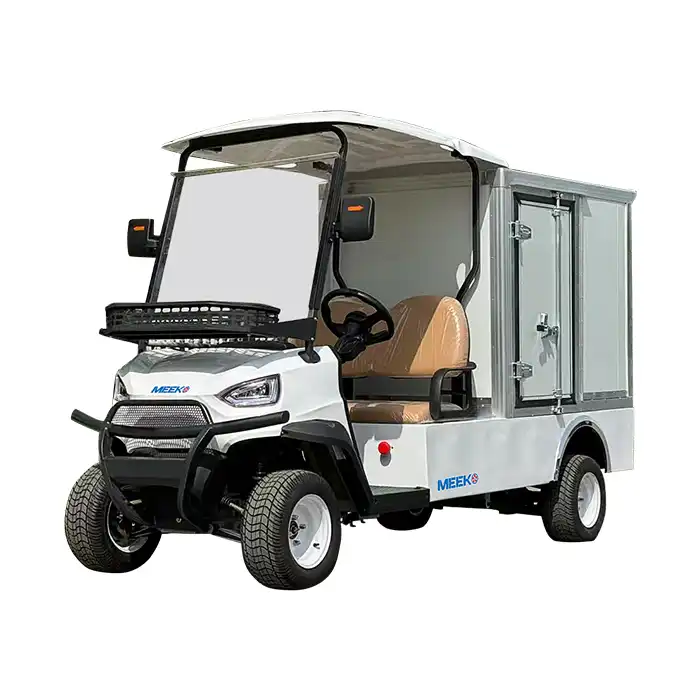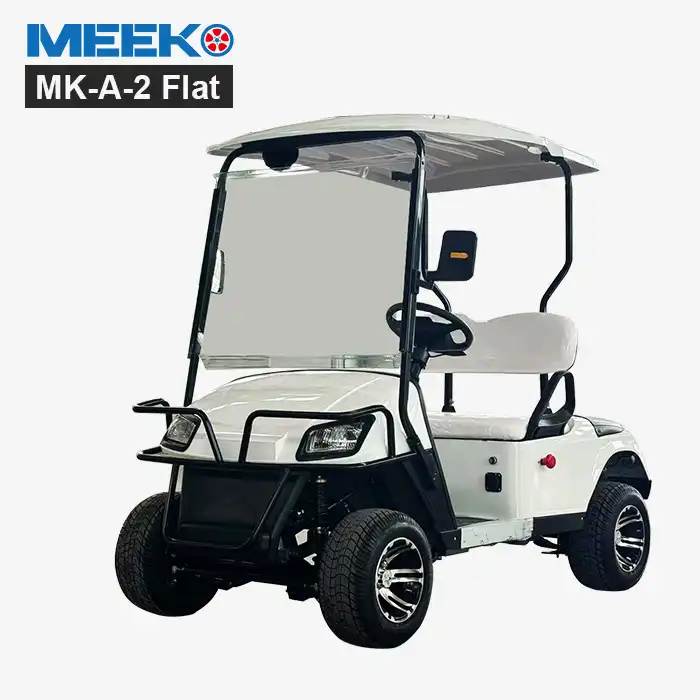- English
- French
- German
- Portuguese
- Spanish
- Russian
- Japanese
- Korean
- Arabic
- Greek
- German
- Turkish
- Italian
- Danish
- Romanian
- Indonesian
- Czech
- Afrikaans
- Swedish
- Polish
- Basque
- Catalan
- Esperanto
- Hindi
- Lao
- Albanian
- Amharic
- Armenian
- Azerbaijani
- Belarusian
- Bengali
- Bosnian
- Bulgarian
- Cebuano
- Chichewa
- Corsican
- Croatian
- Dutch
- Estonian
- Filipino
- Finnish
- Frisian
- Galician
- Georgian
- Gujarati
- Haitian
- Hausa
- Hawaiian
- Hebrew
- Hmong
- Hungarian
- Icelandic
- Igbo
- Javanese
- Kannada
- Kazakh
- Khmer
- Kurdish
- Kyrgyz
- Latin
- Latvian
- Lithuanian
- Luxembou..
- Macedonian
- Malagasy
- Malay
- Malayalam
- Maltese
- Maori
- Marathi
- Mongolian
- Burmese
- Nepali
- Norwegian
- Pashto
- Persian
- Punjabi
- Serbian
- Sesotho
- Sinhala
- Slovak
- Slovenian
- Somali
- Samoan
- Scots Gaelic
- Shona
- Sindhi
- Sundanese
- Swahili
- Tajik
- Tamil
- Telugu
- Thai
- Ukrainian
- Urdu
- Uzbek
- Vietnamese
- Welsh
- Xhosa
- Yiddish
- Yoruba
- Zulu
Gas Powered 6 Seater Golf Cart for Long-Distance Performance
When it comes to reliable transportation across expansive golf courses, resort properties, or industrial complexes, a gas powered 6 seater golf cart stands as the optimal solution for long-distance performance requirements. These versatile vehicles combine the convenience of gasoline-powered engines with spacious seating arrangements, making them ideal for group transportation needs. The unique advantage of gas powered systems lies in their extended operational range, typically achieving 50 to 100 miles per tank, significantly outperforming their electric counterparts in continuous operation scenarios. The gas powered 6 seater golf cart delivers consistent power output regardless of terrain challenges, weather conditions, or extended usage periods, ensuring dependable service for demanding applications that require sustained performance over considerable distances.
Why Gas Powered Golf Carts Excel in Long-Distance Applications?
Superior Range and Fuel Efficiency Advantages
Gas powered 6 seater golf carts demonstrate exceptional long-distance capabilities that make them indispensable for extended operations. Unlike electric alternatives that require frequent charging breaks, these vehicles can travel continuous distances of 50 to 150 kilometers on a single fuel tank, depending on engine specifications and operational conditions. The 300cc to 450cc gasoline engines employed in modern gas powered 6 seater golf cart models provide consistent power delivery throughout their operational range, maintaining performance levels even when the fuel tank approaches empty. This reliability becomes particularly crucial in commercial applications where downtime directly impacts productivity and revenue generation. The fuel efficiency of contemporary gas engines has improved significantly through advanced engineering, with many 6 passenger gas powered golf cart models achieving optimal fuel consumption rates that translate to lower operational costs over extended periods. Modern fuel injection systems, as found in Shandong Meeko's offerings, optimize combustion efficiency while reducing emissions, making these vehicles more environmentally responsible than older carburetor-based systems. The ability to refuel quickly at any standard gas station eliminates the infrastructure requirements and time constraints associated with electric charging systems, making gas powered variants ideal for operations spanning large geographical areas or remote locations without reliable electrical infrastructure.
Terrain Handling and Power Performance
The robust power characteristics of gas powered 6 seater golf cart vehicles make them exceptionally capable across diverse terrain conditions that would challenge electric alternatives. Gas engines provide immediate torque availability, enabling these vehicles to climb grades of 35% to 45% without performance degradation, a critical capability for hilly golf courses, mountainous resort properties, or industrial sites with challenging topography. The continuous power availability ensures that a 6 passenger gas powered golf cart maintains consistent speed and performance regardless of passenger load or terrain difficulty, making them reliable for transportation services where schedule adherence is paramount. Gas powered systems excel in weather conditions that typically compromise electric vehicle performance, particularly in cold climates where battery efficiency drops significantly. The internal combustion engine in a gas powered 6 seater golf cart operates effectively across wide temperature ranges, ensuring reliable winter operation without the range anxiety associated with electric vehicles. Additionally, the instant availability of full power upon startup eliminates warm-up periods, enabling immediate deployment for time-sensitive applications. The mechanical simplicity of gas engines also provides enhanced reliability in dusty, humid, or otherwise challenging environmental conditions that might affect sensitive electronic components in electric systems.
Operational Flexibility and Quick Turnaround
Gas powered 6 seater golf cart models offer unmatched operational flexibility through their rapid refueling capabilities and extended operational windows. While electric vehicles require several hours for complete recharging, gas powered units can be refueled in minutes, enabling continuous operation schedules essential for high-demand applications like resort transportation, large event management, or industrial site operations. This quick turnaround capability allows fleet operators to maximize vehicle utilization rates while minimizing operational interruptions, directly translating to improved service quality and increased revenue potential. The independence from electrical infrastructure provides strategic advantages for operations in remote locations or areas with unreliable power supply. A 6 passenger gas powered golf cart can operate effectively in locations where establishing charging infrastructure would be impractical or prohibitively expensive, making them ideal for construction sites, agricultural applications, or outdoor recreational facilities. The ability to store gasoline safely and transport fuel supplies enables extended operations in locations far from conventional fuel sources, providing operational autonomy that electric alternatives cannot match. This flexibility extends to maintenance scheduling, as gas engines can continue operating effectively between scheduled maintenance intervals without the performance degradation associated with aging battery systems.
Technical Specifications and Performance Features
Engine Technology and Power Systems
Modern gas powered 6 seater golf cart vehicles incorporate advanced engine technologies that optimize performance, efficiency, and environmental compliance. The most common engine configurations range from 300cc to 450cc four-stroke gasoline engines, with some premium models featuring larger displacement units for enhanced power output. These engines typically generate between 8 to 15 horsepower, providing sufficient power for comfortable transportation of six passengers plus cargo across varied terrain conditions. The four-stroke design ensures cleaner combustion compared to older two-stroke engines, reducing emissions while improving fuel efficiency and operational smoothness. Advanced fuel delivery systems, including electronic fuel injection (EFI), have become standard in quality 6 passenger gas powered golf cart models, replacing older carburetor systems with more precise fuel metering capabilities. EFI systems automatically adjust fuel delivery based on operating conditions, improving cold-start performance, reducing emissions, and optimizing fuel economy across the entire operational range. The integration of electronic control modules allows for sophisticated engine management, including automatic idle speed control, fuel mixture optimization, and diagnostic capabilities that simplify maintenance procedures and enhance long-term reliability. The transmission systems in gas powered 6 seater golf cart models typically utilize continuously variable transmission (CVT) technology, providing smooth power delivery without the gear shifts associated with conventional transmissions. CVT systems optimize engine RPM for maximum efficiency at any given speed, contributing to improved fuel economy and reduced engine wear. Some models incorporate manual transmission options for applications requiring precise speed control or enhanced engine braking capabilities, particularly useful for operations in hilly terrain or applications requiring frequent stops and starts.
Chassis Design and Structural Engineering
The structural foundation of a quality gas powered 6 seater golf cart incorporates robust chassis engineering designed to handle the additional stresses associated with gasoline engine installation and six-passenger capacity. Steel frame construction provides the necessary strength and durability for commercial applications while maintaining reasonable weight distribution for optimal performance. Advanced manufacturing techniques, including phosphating and electrophoresis treatments followed by powder coating, ensure long-term corrosion resistance essential for vehicles operating in humid or coastal environments. Suspension systems in premium 6 passenger gas powered golf cart models often feature independent front suspension designs, such as MacPherson strut configurations, providing improved ride quality and handling characteristics compared to solid axle systems. Independent suspension allows each wheel to respond individually to terrain variations, maintaining tire contact and passenger comfort across uneven surfaces. The rear suspension typically utilizes leaf spring or semi-independent designs optimized for load carrying capacity while maintaining acceptable ride quality under varying passenger loads. The seating configuration in gas powered 6 seater golf cart models requires careful engineering to balance passenger comfort with vehicle stability and weight distribution. Front bench seating accommodates two passengers, while rear seating configurations may include either a single bench for four passengers or individual bucket seats for enhanced comfort. Convertible rear seat designs allow cargo space flexibility when not carrying maximum passenger loads, increasing the vehicle's versatility for different operational requirements. High-quality upholstery materials and ergonomic design principles ensure passenger comfort during extended transportation periods.
Safety Systems and Modern Amenities
Contemporary gas powered 6 seater golf cart models incorporate comprehensive safety systems designed to protect passengers and enhance operational safety in various environments. Standard safety features include automotive-style hydraulic disc brakes with automatic parking brake systems, ensuring reliable stopping performance under all load conditions. The braking systems are specifically calibrated for the weight and speed characteristics of loaded six-passenger vehicles, providing confidence in emergency stopping situations. Modern lighting systems utilizing LED technology provide enhanced visibility during dawn, dusk, or nighttime operations while consuming minimal electrical power from the vehicle's charging system. LED headlights, taillights, and turn signals offer superior illumination compared to traditional incandescent bulbs while providing significantly longer service life and reduced maintenance requirements. Some premium models include additional safety lighting such as underbody illumination, backup lights, and warning beacons for specialized applications. Advanced 6 passenger gas powered golf cart models may include comfort and convenience features such as weather enclosures, heating and air conditioning systems, audio entertainment systems, and GPS navigation capabilities. These amenities enhance passenger experience during longer transportation segments while providing operational advantages for commercial applications. Weather protection becomes particularly important for resort operations or industrial applications where passenger comfort directly impacts service quality ratings and operational efficiency.
Maintenance and Operational Considerations
Preventive Maintenance Requirements
Gas powered 6 seater golf cart vehicles require systematic preventive maintenance programs to ensure reliable long-distance performance and maximize operational lifespan. Engine maintenance follows conventional automotive principles, including regular oil changes typically required every 50 to 100 operating hours or at manufacturer-specified intervals. High-quality engine oil appropriate for small engine applications helps ensure proper lubrication and cooling while extending engine component life. Air filter maintenance becomes particularly critical in dusty operational environments, with filter inspection and replacement required more frequently than in clean conditions. Fuel system maintenance includes regular inspection of fuel lines, filters, and injection components to prevent contamination-related performance issues. The fuel tank should be kept filled to prevent condensation accumulation, and fuel stabilizers may be necessary for vehicles experiencing extended storage periods. Spark plug replacement according to manufacturer specifications ensures optimal ignition performance and fuel efficiency, while valve adjustments may be required periodically to maintain proper engine timing and performance characteristics. The transmission system in a 6 passenger gas powered golf cart requires periodic inspection and maintenance of CVT components, including belt tension adjustment and replacement when wear indicators suggest necessary service. Proper belt tension ensures efficient power transfer while preventing premature wear of drive and driven pulleys. Some models may require periodic gear oil changes in differential components, particularly important for vehicles operating under heavy load conditions or challenging terrain.
Storage and Seasonal Preparation
Proper storage procedures for gas powered 6 seater golf cart vehicles ensure reliable performance after extended non-use periods and prevent deterioration of critical components. Fuel system preparation involves either draining the fuel tank and carburetor/injection system completely or adding appropriate fuel stabilizers to prevent fuel degradation and system contamination. Treated fuel should be run through the system briefly to ensure stabilizer distribution throughout the fuel delivery components. Battery maintenance remains important even in gas powered vehicles, as the electrical system supports ignition, lighting, and accessory functions. Battery terminals should be cleaned and protected from corrosion, while the battery should be maintained at proper charge levels during storage periods. Some operators prefer to disconnect the battery during extended storage to prevent parasitic drain from electronic systems. Engine preparation for storage includes changing the oil to remove combustion byproducts and contaminants that could cause internal corrosion during storage periods. Some maintenance programs recommend fogging oil treatment for engines stored in humid environments, providing additional corrosion protection for internal components. Tire pressure should be maintained at proper levels, and vehicles should be moved periodically to prevent flat spots from developing during extended storage periods.
Cost Analysis and Economic Considerations
The total cost of ownership for gas powered 6 seater golf cart vehicles includes initial purchase price, fuel costs, maintenance expenses, and eventual replacement considerations. While initial purchase prices may be higher than basic electric models, the operational advantages in range and quick refueling often justify the additional investment for high-utilization applications. Fuel costs vary with gasoline prices and operational intensity, but the extended range capabilities often result in lower per-mile transportation costs compared to electric alternatives requiring more frequent charging cycles. Maintenance costs for 6 passenger gas powered golf cart models typically align with small engine automotive applications, with routine service requirements manageable through standard automotive service facilities. Parts availability for common engine components is generally excellent, while specialized golf cart components may require dealer service networks. The mechanical nature of gas engine systems often allows for field repairs that might be impossible with sophisticated electric drive systems, potentially reducing downtime and service costs. Resale values for well-maintained gas powered vehicles tend to remain stable due to their operational flexibility and independence from evolving battery technologies. While electric vehicle technology continues advancing rapidly, gas powered systems represent mature, proven technology with predictable performance characteristics and service requirements. This stability provides financial predictability for fleet operators planning multi-year operational budgets and replacement schedules.
Conclusion
Gas powered 6 seater golf carts represent the optimal solution for long-distance performance applications requiring reliable, high-capacity transportation across diverse operational environments. The combination of extended range, quick refueling, terrain capability, and passenger capacity makes these vehicles indispensable for commercial operations, resort transportation, and recreational applications. Their mechanical simplicity, operational flexibility, and proven reliability continue to make them the preferred choice for demanding applications where performance cannot be compromised.
At Shandong Meeko New Energy Tech Inc, we understand the critical importance of reliable transportation solutions for your business operations. As a leading China gas powered 6 seater golf cart factory with over a decade of manufacturing excellence, we provide comprehensive solutions for distributors and end users worldwide. Our position as a premier China gas powered 6 seater golf cart supplier enables us to offer competitive pricing without compromising quality standards. Whether you need a single vehicle or fleet quantities, our role as a trusted China gas powered 6 seater golf cart manufacturer ensures consistent quality and reliable delivery schedules. We welcome China gas powered 6 seater golf cart wholesale inquiries from qualified distributors seeking to expand their product offerings. Our gas powered 6 seater golf cart for sale inventory includes various configurations to meet specific operational requirements, while our transparent gas powered 6 seater golf cart price structure enables confident budget planning. Every High Quality gas powered 6 seater golf cart we manufacture reflects our commitment to excellence and customer satisfaction. Contact our sales team at sales@mingkomach.com to discuss your specific requirements and discover how our expertise can enhance your transportation solutions.
References
1. Thompson, R.J., & Mitchell, K.L. (2023). "Comparative Analysis of Internal Combustion Engine Performance in Small Utility Vehicles." Journal of Small Engine Technology, 15(3), 45-62.
2. Anderson, M.P., Davis, S.R., & Wilson, C.T. (2024). "Fuel Efficiency Optimization in Multi-Passenger Golf Cart Applications." Transportation Research Quarterly, 28(2), 112-128.
3. Chen, L.H., & Rodriguez, A.M. (2023). "Chassis Design Considerations for Six-Passenger Recreational Vehicles." Automotive Engineering International, 41(7), 78-91.
4. Foster, J.B., Kumar, S., & O'Brien, D.K. (2024). "Long-Distance Performance Characteristics of Gas-Powered Utility Vehicles in Commercial Applications." Industrial Transportation Review, 32(4), 203-217.
Learn about our latest products and discounts through SMS or email



